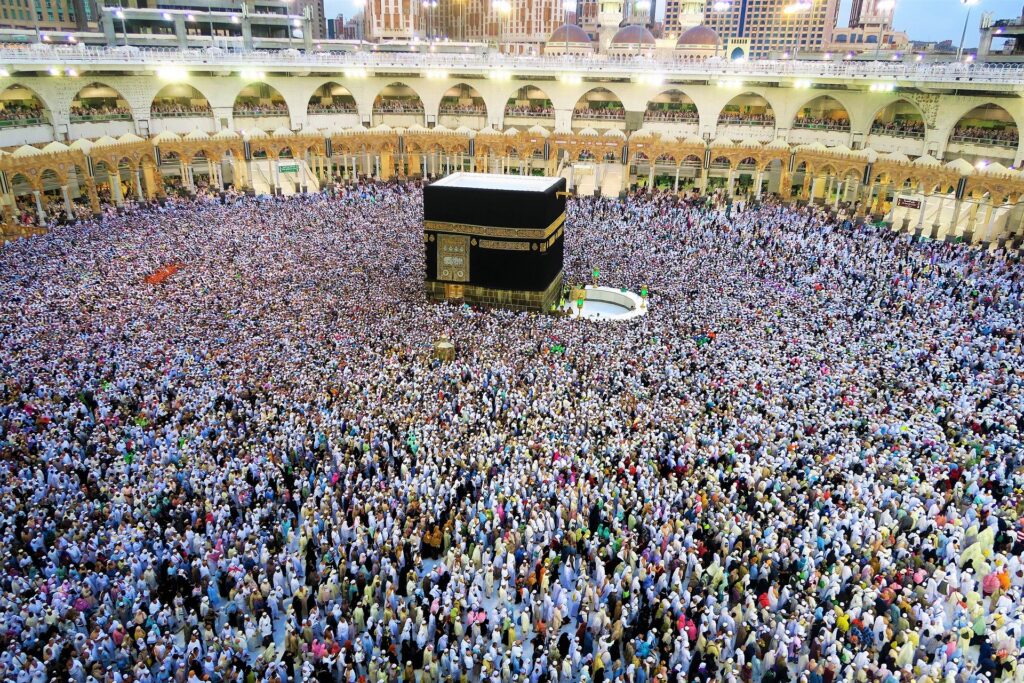Al-Hafiz Yunus Omotayo, Missionary and Chairman of the Muslim Writers Guild of Nigeria

Islam, derived from s-l-m – a word that means peace and denotes submission to the will of Allah to engender a life in peace with oneself, with one’s Creator, fellow humans and the world.
“Verily, the [true] religion with Allah is complete submission” (Surah Al-e-Imran, Ch.3: V.20)
The term “al-din al-islami” translates to the Islamic way of life (sirah), religion (millah), law (shariah), culture (adah), judgement (qaza), governance (hukm) and rule (mulk).
Islam emerged on the global scene in the seventh century AD as a world religion (Surah al-Furqan, Ch.25: V.2) and a recrystallisation of the ancient Mesopotamian and Abrahamic family of religious traditions (Surah al-Mai‘dah, Ch.5: V.16). As a shariah, an ideology and social order, it proclaims a mission that seeks “ihya al-ardh ba‘da mautihaa” i.e. a revolutionary renaissance of the cosmos, of all ramifications of human intellectual, religious, social, economic and political existence (Surah al-Hadid, Ch.57: V.18). Likewise, it envisions a globalisation of the world order of Allah on earth (Surah al-Saff, Ch.61: V.10) and a realisation of both terrestrial and celestial paradisiacal existence for the human race. (Surah al-Rahman, Ch.55: V.47)
Recognising the weak nature inherent in humanity (Surah al-Nisa, Ch.4: V.29), Islam sets about to define and explain the meaning, essence and purpose of human life and to structure and guide all manifestations of man’s existence in order to enable him to attain his rightful status of a being created in the image of God and to live a peaceful and prosperous life here and the Hereafter.
Muhammadsa bin Abdullah, the Holy Prophet of Islam, who is the Seal of the Prophets (Surah al-Ahzab, Ch.33: V.41), was the recipient of the Holy Quran – the divine scripture of Islam – which embodies the fundamentals and, in many cases, the details of the theological teachings, the legal doctrines and legislations and the socio-political and economic principles and systems of Islam. (Surah al-Nahl, Ch.16: V.90).
In the 23-year span of his prophetic mission at Mecca and Medina, Prophet Muhammadsa, through his sunnah (practice), proffered divinely-sanctioned model conceptions, interpretations and applications of the Quranic teachings and worldview for the Muslims. (Surah al-Ahzab, Ch.33: V.22)
Islam represents itself as “dinullah”, the religion of Allah (Surah al-Nasr, Ch.110: V.3); as “din al-hanif”, the primordial religion of man, and as “din al-fitrah”, the natural religion or the religion that is natural to the human nature and essence. (Surah al-Rum, Ch.30: V.31)
This conceptualisation, therefore, enshrines Islam as a trans-racial ideological order and system and a civilisational movement whose purpose is to invite and construct for man a cosmic order that follows and fulfils Allah’s following tripartite intention for bringing about human existence on earth: the intention that man should establish the worship of and servitude to the Divine (ibadatullah); that he should acquire and exert his rightful status of being God’s vicegerent on earth (Khalifatullah fil-ardh) (Surah al-Baqarah, Ch.2: V.31); and as a corollary to the above, that he may populate the earth and explore, organise and usufruct the available human and cosmic resources to construct a robust and glorious human civilisation on earth (isti‘mar fil-ardh). (Surah Hud, Ch.11: V.62)
Islam – whose simple, humane, comprehensive and universal teachings are constructed upon the intrinsic values of human brotherhood, peace, love, understanding and respect – is decreed to be globalised, not localised; to be followed, not to follow; and to dominate and predominate, not to be dominated. (Surah al-Saff, Ch.61: V.10)
Today, with over 1.8 billion followers, Islam is the second-largest, but the fastest growing religion in the world. (www.pewresearch.org/fact-tank/2017/04/06/why-muslims-are-the-worlds-fastest-growing-religious-group/)

